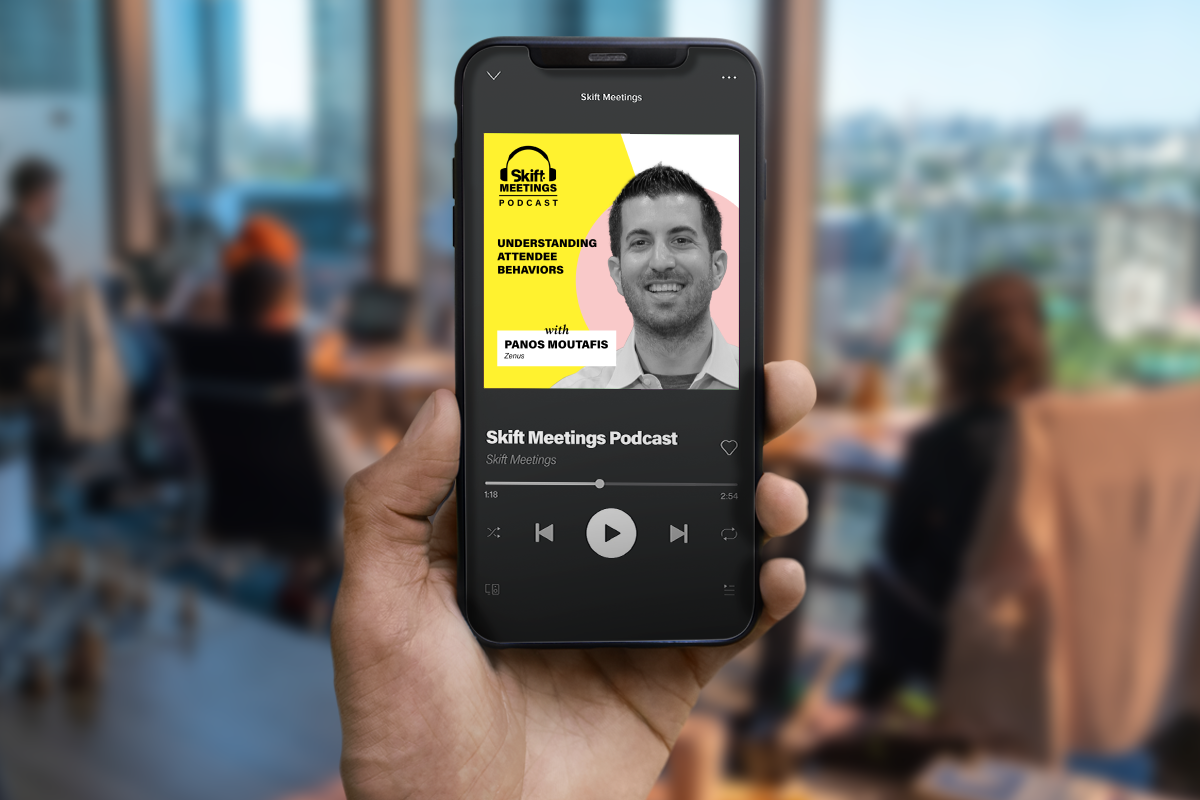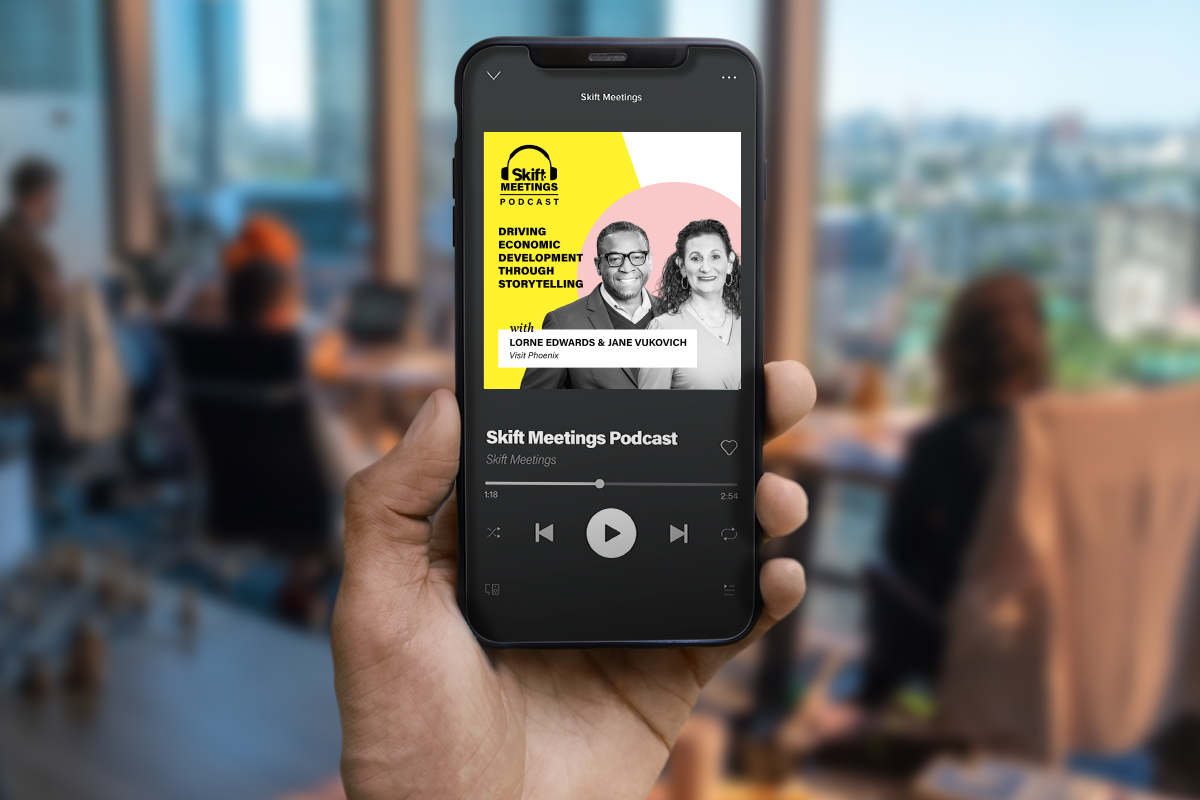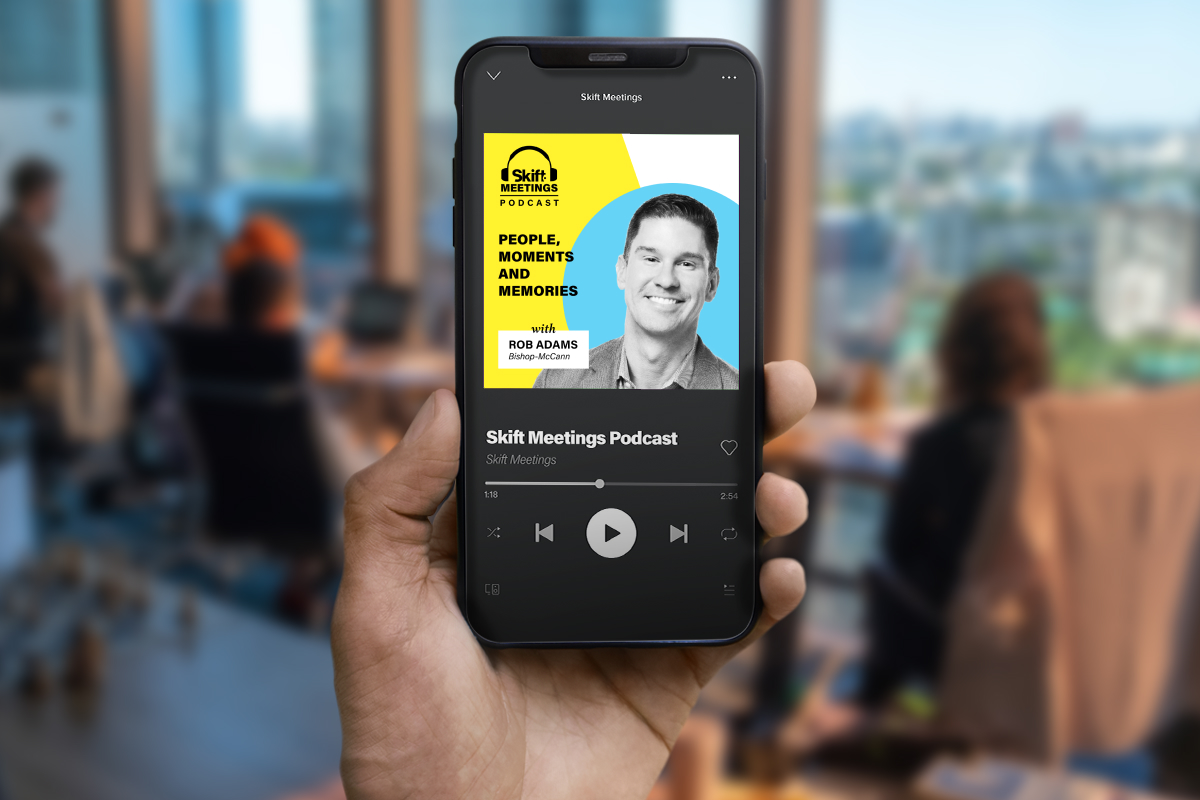Skift Take
Panos Moutafis, co-founder and CEO of Zenus, discusses the value of understanding attendee behaviors and shares the benefits of the company's unique AI-powered platform aimed at business events and retail.
Panos Moutafis is the co-founder and CEO of Zenus, a behavioral analytics company serving the events and retail industries. Originally from Greece, Moutafis moved to the US to attend the University of Houston for his Ph.D. in computer science. It was during this time that the university patented his work. He later received funding from the National Science Foundation’s Innovation Corps and ultimately founded Zenus and decided to focus on the event industry.
Subscribe to the Skift Meetings Podcast: Apple Podcasts | Spotify | Overcast | Pocket Casts | Google Podcasts | Amazon | RSS
Zenus analyzes human behavior using video feeds. They use this information to help clients understand what people do, what they like, and where they are spending time. This type of approach can be incredibly useful for event organizers, particularly when it comes to trade shows, but also for retail.
Zenus uses video to track sentiments in real time and over time. The system acts like an in-the-moment survey data to help the event organizer better understand their audience. In addition, AI helps the system understand human behavior.
Events often come together at the last minute, with the completion of set up often taking place the day of the event itself. This temporary setup with tight execution times provides a unique challenge to products such as RFID badges and beacons. Reconfiguring the hardware setup within these time constraints can lead to issues or potentially disappointed clients.
Zenus’ approach uses cameras fed into custom devices that capture and process data on-site. This system avoids issues with internet bandwidth in event spaces, as there is very little data to transmit to the cloud. With no video stored, there are also no server storage costs.
Zenus created their device during the pandemic, which is no larger than a Mac mini. Installation and breakdown times are many times faster than other types of systems, even when using multiple devices. Each device can analyze up to 500 faces simultaneously. They do not capture, transmit or store any video but instead extract the metadata, which can determine the number of people in the room and their dwell time within specific areas.
The system does not operate as facial recognition. Therefore, they are not storing any personally identifiable information, something Moutafis acknowledges can make people and organizations uncomfortable. Zenus made the decision to pivot away from facial recognition due to these concerns.
This episode of The Skift Meetings Podcast was produced in partnership with Zenus.
Head to wherever you get your podcasts now to hear more about this exciting and emerging technology. Don’t forget to hit subscribe to ensure you never miss an episode!
You can read more about Zenus’ technology in our Zenus AI Badge Scanning and Facial Analysis [Review]






